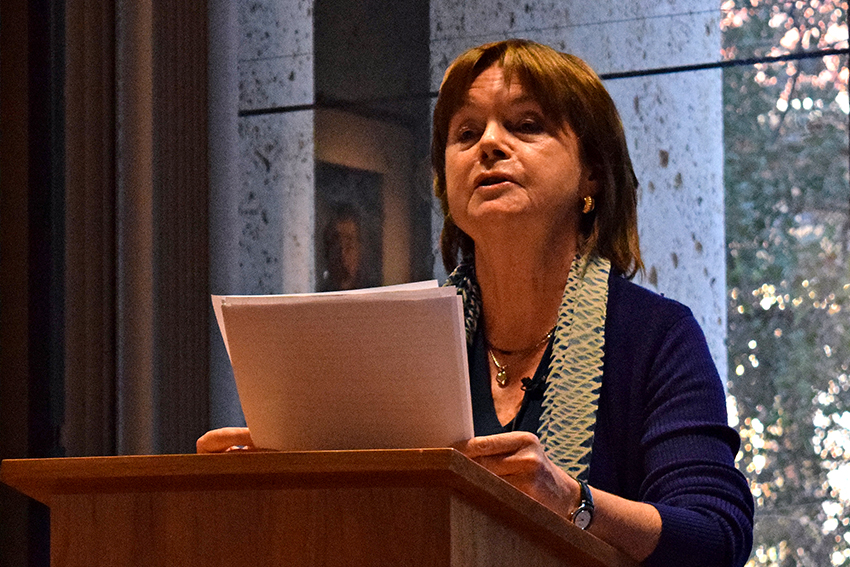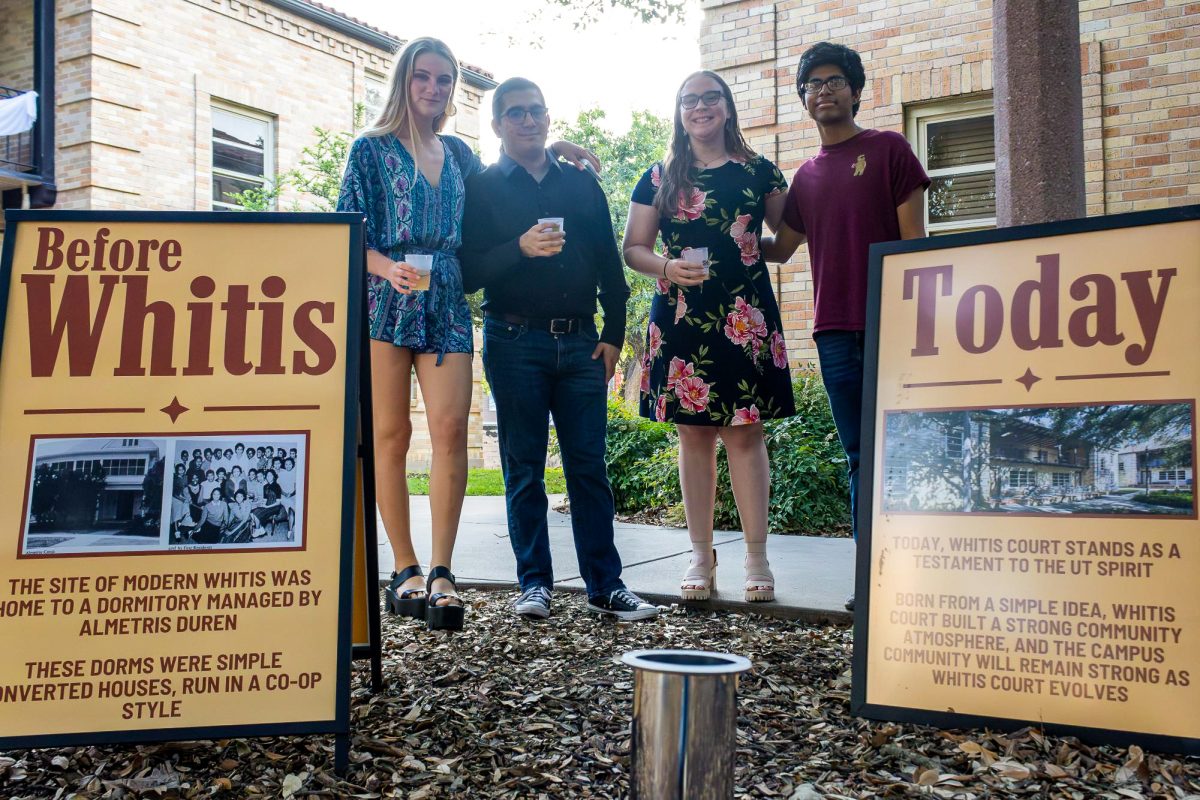Although most World War II stories involve men fighting on the front lines, one journalist has explored an often overlooked side of Nazi resistance — female civilians who confronted the oppression of Hitler in France.
British biographer Caroline Moorehead spoke about the lives of female resistance fighters during a lecture at the Harry Ransom Center on Friday.
Over 10 years ago, the historian and journalist began writing her first book about the lives of 230 women, all non-Jews, who resisted the push of Nazism and were sent to the concentration camp in Auschwitz.
“[The book] seems to me to have everything I find most interesting — personal stories, history, courage, imagination, danger and fear and the unknown,” Moorehead said.
Moorehead said she set out to write a cheerful story about the largely unnoticed rays of hope in that precarious time of Nazi and fascist Europe, stories about the fighters and lifesavers. But to her surprise, the horrors of the reality of that time and place made her book much gloomier than she originally intended it to be.
“Their stories may be depressing and gloomy, but their endings will be happy,” Moorehead said.
Moorehead said the unbreakable bond of friendship shared between the 49 women who survived Auschwitz astonished her the most.
“I was fascinated by the spontaneous nature of their courage,” Moorehead said.
History senior Andrew Zekany, who attended the talk, said he was struck by Moorehead’s vivid recounting of the lives of these resistance women. Moorehead’s work portrayed the reality of wartime and reinforced how the terrible nature of war affects not only soldiers on the battlefront, but the lives of ordinary citizens, Zekany said.
“I think it gives you a personal perspective,” Zekany said. “You can really put yourself in [the individual resister’s] shoes. [Otherwise,] it’s hard to conceptualize millions of people dying.”
Former HRC director Thomas Staley said the pursuit of history and recounting important figures’ lives was a source of priceless knowledge and awareness.
“They say in ‘The Great Gatsby’ that you can’t recapture the past. Of course you can,” Staley said. “If you don’t know your past, you don’t know what you’re doing, you don’t know how you got there, you don’t know what your moral bearing is. You can’t leave the past away.”





















